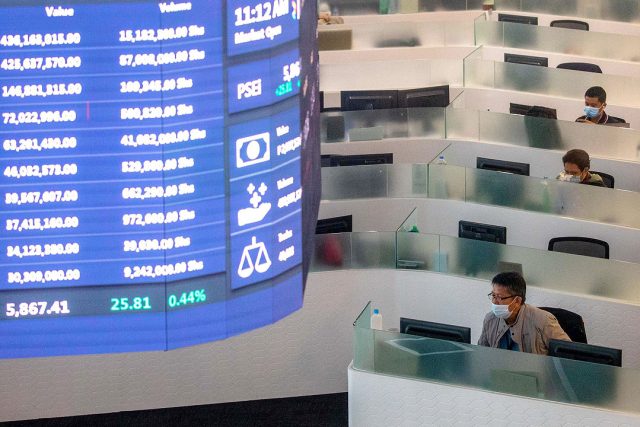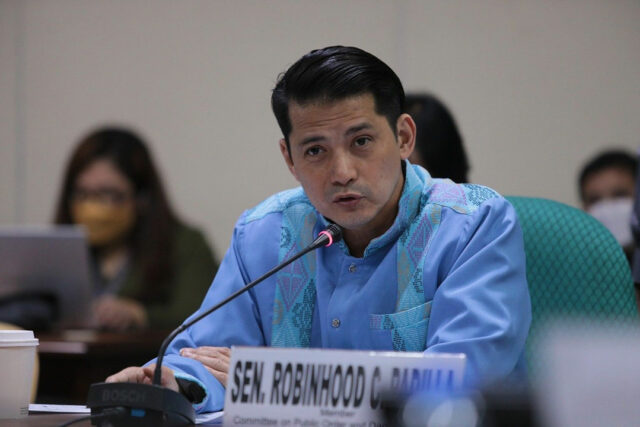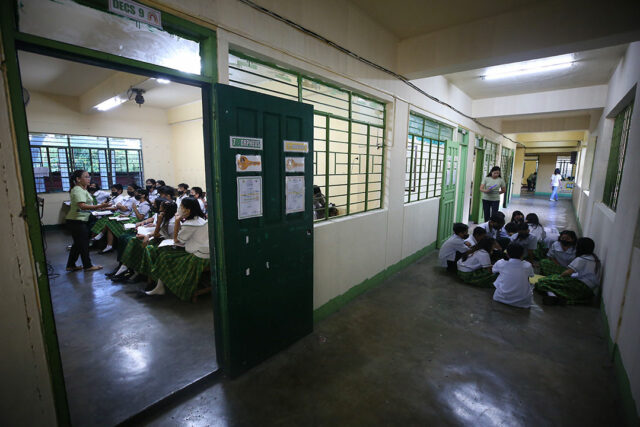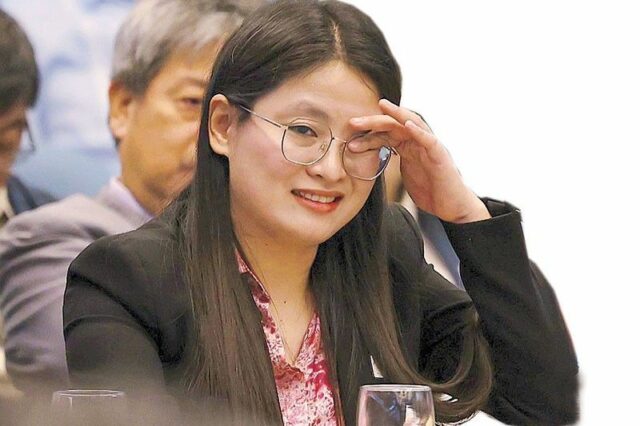PSEi hits over two-month high on rate cut view
PHILIPPINE SHARES ended higher on Monday, inching closer to the 6,700 mark, as positive sentiment overseas spilled over to the local market and amid growing monetary easing expectations here and abroad.
The Philippine Stock Exchange index (PSEi) rose by 0.61% or 41.14 points to close at 6,689.37 on Monday, while the broader all shares index gained by 0.5% or 18 points to finish at 3,594.22.
This was the PSEi’s best close in over two months or since it finished at 6,700.49 on April 30.
“The local bourse gained… due to the positive spillover from the US markets’ performance last Friday,” Philstocks Financial, Inc. Research Analyst Claire T. Alviar said in a Viber message.
Wall Street closed higher on Friday, with the S&P 500 and the Dow Jones Industrial Average hitting intraday record highs, on bets that the US Federal Reserve will cut interest rates in September, Reuters reported.
The S&P 500 climbed 0.55% to end the session at 5,615.35 points. The Nasdaq gained 0.63% at 18,398.45 points, while Dow Jones Industrial Average rose 0.62% to 40,000.90 points.
Data showed producer prices were slightly hotter-than-expected in June but that did little to change bets on the first rate cut in September. The report follows data showing a surprise fall in US consumer prices on Thursday.
Traders are betting on a 94% chance of a rate cut by September, up from 78% a week prior, according to CME Group’s FedWatch.
Ms. Alviar added that expectations of bets on the Bangko Sentral ng Pilipinas (BSP) monetary easing path also boosted Philippine stocks.
“Philippine shares made a challenge towards the 6,700 level, settling just a few points off, as investors await more data that will fuel expectations of rate cuts for both the BSP and Fed,” Regina Capital Development Corp. Head of Sales Luis A. Limlingan said in a Viber message.
BSP Governor Eli M. Remolona, Jr. last month said the Monetary Board may deliver its first rate cut in over three years at its Aug. 15 review as they expect inflation to continue easing this semester.
The BSP last month kept its policy rate at a 17-year high of 6.5% for a sixth straight meeting.
Majority of sectoral indices closed higher on Monday. Property surged by 1.9% or 49.58 points to 2,651.18; holding firms climbed by 1.73% or 98.89 points to 5,785.36; mining and oil rose by 1.07% or 91.75 points to 8,646.25; and industrials went up by 0.27% or 25.27 points to 9,156.50.
Meanwhile, services fell by 1.07% or 22.15 points to 2,046.62, and financials inched down by 0.08% or 1.65 points to 2,027.42.
Value turnover rose to P5.22 billion on Monday with 460.5 million issues changing hands from the P4.38 billion with 319.13 million shares traded on Friday.
Advancers overwhelmed decliners, 117 against 59, while 52 names closed unchanged.
Net foreign selling stood at P46.18 million on Monday versus the P257.15 million in net buying posted on Friday. — R.M.D. Ochave with Reuters












